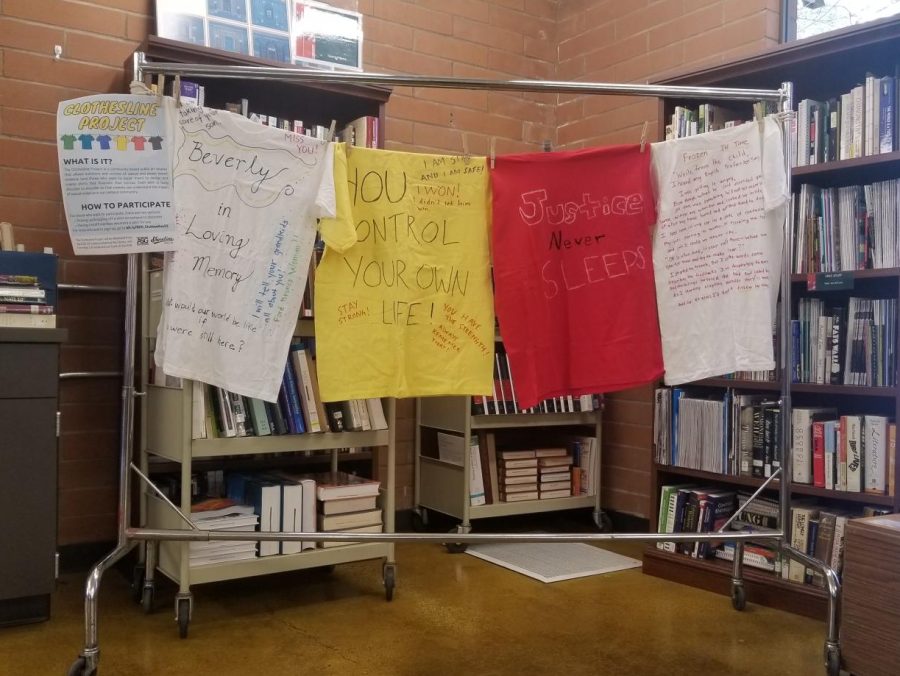Conversations Together About Abuse
SCC participated in an artistic demonstration about violence known as the Clothesline Project.
May 13, 2022
Despite the #MeToo movement’s cultural prominence and high-profile abuse cases making headlines, domestic violence and sexual assault are challenging, intimidating and painful things to talk openly about. It’s one reason why so many crimes go unreported and why so many victims don’t share their experiences, even with their closest friends and family. It can be excruciating to not only reopen wounds, but to share that experience with others. Some can feel ashamed. Some feel angry. Others feel some combination of these or different feelings entirely, like confusion or disassociation. Sickeningly, many don’t survive the experience at all.
The creators of the Clothesline Project want to shed light on these incidents.
In 1990, a visual demonstration was created to spread awareness and incite meaningful conversations about violence towards women. Inspired by the power of the AIDS Memorial Quilt, demonstrators hung 31 color-coded shirts from a clothesline, each designed by a woman expressing her feelings about violence.
The project has grown to encompass many types of abuse and includes survivors of all sorts. Some survivors use the shirt to express their pain and others use it to let victims know they’re not alone. Many designs do both. The Clothesline Project estimates that there’s approximately 50,000-60,000 shirts now.
Yet, according to a CDC report in 2010, about 1 in 5 women and 1 in 71 men in the United States have been raped at some time in their lives. The problem is still here. So the project continues; more than 500 exhibits take place annually and SCC hosted one this spring.
According to Director of Student Leadership Sundi Musnicki, SCC last participated in the Clothesline project in 2012. Musnicki cites a transition of leadership in the Gender Equity Center as a catalyst for reigniting projects about societal issues. SCC’s Associated Student Government (ASG) President, Sunshine Cheng and ASG Social Justice Officer Malina Massey organized this year’s Clothesline Project demonstration.
SCC’s eight submitted shirts were displayed in frequented campus locations between April 25 and May 6. The goal of the displays was to promote dialogue about abuse and provide a space for survivors and their loved ones to feel seen and heard. Massey and Cheng presented this exhibit during a professional development day for faculty and staff, emphasizing the importance of giving people in the community a voice. The college responded by starting conversations about support systems for students.
SCC will host another Clothesline Project event in 2023. Musnicki hopes participation will grow and the Clothesline project will continue to provide representation and a method of expression for years to come.







